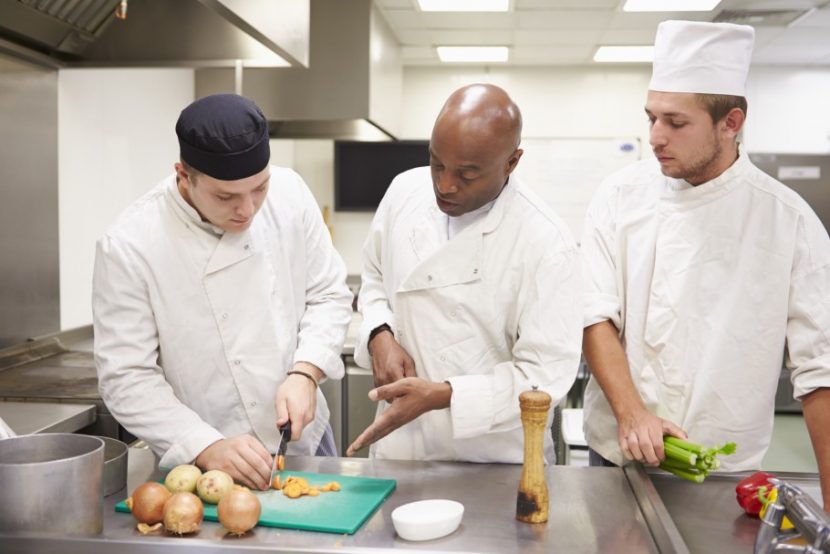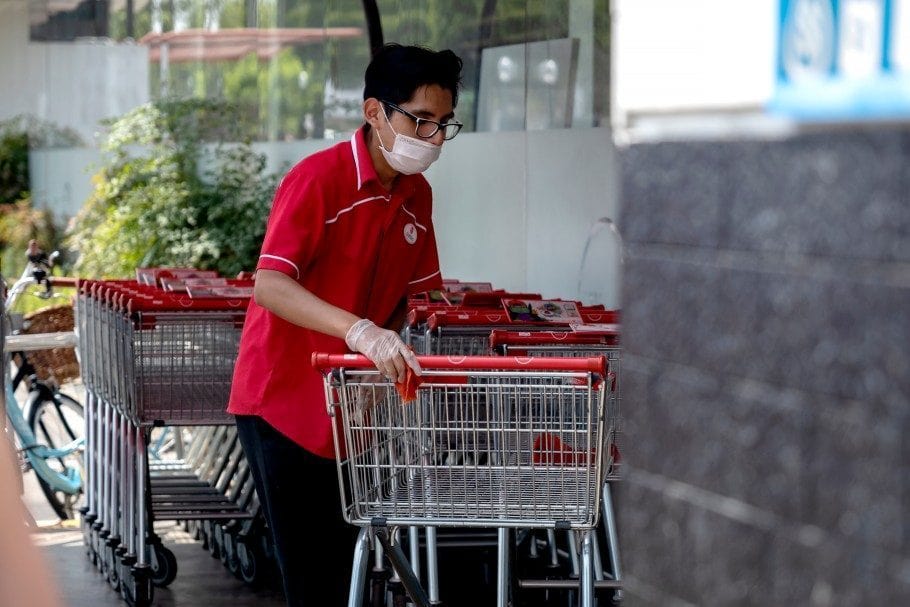Key to Staff Retention in Restaurants is to Implement a Food Safety Culture
By Lauren Solar
The food service sector has a high staff turnover rate, with industry estimates suggesting that fast food workers leave at a rate of up to 150 per cent. The costs of training new employees can be prohibitive, but the cost of not training employees properly can be astronomical: outbreaks of foodborne illness, allergen awareness, shutdowns, sanitizing, recertification, public relations and marketing to restore the company’s reputation, higher insurance premiums, possible lawsuits and court costs.
“I prefer to focus on employee retention, instead of thinking of it in terms of staff turnover,” says Dickson Dsouza, a hospitality consultant who has worked around the world. “It is always a challenge to retain talent and at the same time, ensure that the end product is good, safe food that is served well.”
The good news is that some of the best practices for staff retention and those for building a good food safety culture are strikingly similar.
One of the first steps is to start at the top. Every level of management, from the frontline supervisors to the CEO, must be following the same food safety protocols. This equity is a powerful tool in staff retention. “Employees are looking for consistency, that the messages that management is giving are consistent in word and deed,” says Dr. Brita Ball, a food safety specialist, trainer and facilitator.
Another key step in food safety culture is to explain the why: why food safety is so important and what the possible consequences of an employee’s actions are. “Some people do really well when they understand that they have a critically important role to play, that the work that they do is important because they are keeping people safe. When they understand how important their jobs are, it helps them feel good about what they do,” Dr. Ball explains. When employees feel good about what they do, they are less likely to leave.
Training new employees and refresher training in food safety are also key to building a strong food safety culture, but they can also be great staff motivators. Deanna Zenger, Project Manager of Succeeding at Work, a program developed by Food Processing Skills Canada, says that employers were surprised by the willingness of employees to educate themselves on their own time, not at work. “The employees felt inspired that their employer thought enough of them to provide this [education]. What a winning combination that is!” She adds that comments from participants in Succeeding at Work revealed that “these employees now want to go farther in the company, they want to stay with the company, and they understand their job better.”
Kathy Knutson, food safety author and independent contractor with US-based online food safety training company ImEPIK, agrees. “What really needs to happen is a lot more training throughout the year, refresher training… building in training and messaging about food safety every chance you can. It’s a large burden on the food industry to do that. But that’s the trade-off. How else can you be confident that your employee is going to make a good decision when faced with a food safety issue?” However, that training is a solid investment. Training shows employees that their employer is invested in them and builds employees’ confidence and satisfaction in their work. Leveraging this necessary training to motivate employees, either through financial incentives or peer recognition and promotion, is a great way to retain staff.
Strong communication is another building block of food safety culture. “In a good food safety culture, each employee is going to feel confident speaking with their peers and their supervisor,” Knutson says. “The focus should be on making sure employees feel they can easily talk to any other employee, no matter what their level, about questions they have.” Communication can also build a work environment where people feel that they are truly part of a team and are comfortable in their position.
Staff retention and food safety culture should go hand in hand. When a company invests in one, they will also be investing in the other. It’s a win-win situation.
About the Author:
Lauren Solar is a regular freelance contributor to GFSR and has written extensively on a number of topics for our publication, with particular emphasis on regulation. With more than 30 years of freelance writing and editing experience, she has also written on a variety of topics, particularly in the areas of health and not-for-profit organizations. Because of her own food allergies and her extensive background with allergy advocacy groups, she helped create the Food Allergen Food Safety Training offered by TrainCan and is a certified trainer on this topic. She has also done a great deal of technical and business writing.

-
 FeaturedRisk management
The Cost of a Breach: What a Cyberattack Could Mean for Food Safety Recalls
FeaturedRisk management
The Cost of a Breach: What a Cyberattack Could Mean for Food Safety Recalls
-
 FeaturedRisk management
Securing the Food Chain: How ISO/IEC 27001 Strengthens Cybersecurity
FeaturedRisk management
Securing the Food Chain: How ISO/IEC 27001 Strengthens Cybersecurity
-
 FeaturedRisk management
Revolutionizing Food Safety Training: Breaking Out of the “Check-the-Box” Mentality
FeaturedRisk management
Revolutionizing Food Safety Training: Breaking Out of the “Check-the-Box” Mentality
-
 GFSI Standards
GFSI 2025: Building Trust, Tech-Forward Solutions, and Global Unity in Food Safety
GFSI Standards
GFSI 2025: Building Trust, Tech-Forward Solutions, and Global Unity in Food Safety
-
 FeaturedFood Safety
Integrated Pest Management: Strategies to Protect Your Brand’s Reputation
FeaturedFood Safety
Integrated Pest Management: Strategies to Protect Your Brand’s Reputation
-
 FeaturedFood Safety Culture & Training
No Open Door Policy: Challenges That Impact Pest Control in Food Processing Plants
FeaturedFood Safety Culture & Training
No Open Door Policy: Challenges That Impact Pest Control in Food Processing Plants




